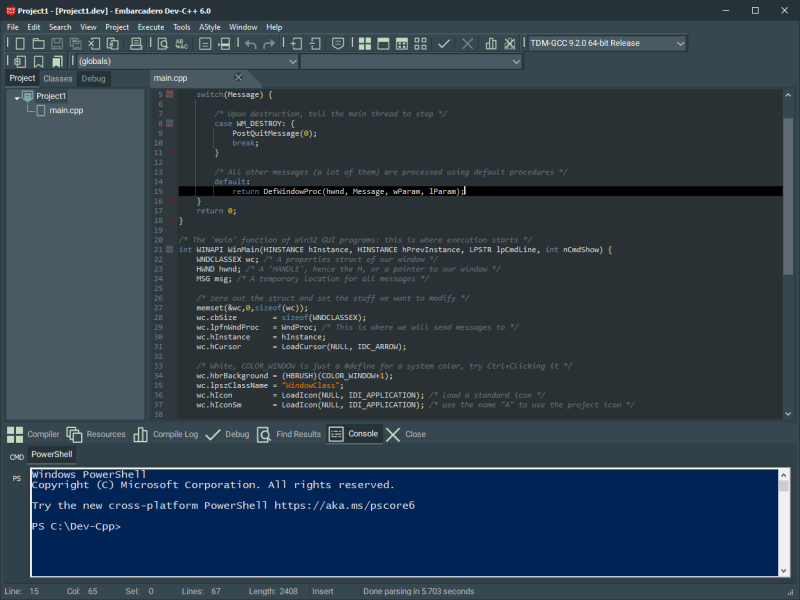

Interpreted programming languages run inside executable applications like Java, Python or Visual Basic. This is one reason why C++ is the fastest and most powerful programming language. Such code may not be as fast as assembler code, but the difference in speed is very small because both machine code and compiler-based code in text form are much more compatible with other CPU/GPUs and/or with other Operating Systems when you compile them on a machine. C/C++ codes) written with text into executable machine code with a linker. A Compiler (C or C++ Compiler, etc.) is a computer program that converts one programming language (i.e. This is the most native and fastest code, but it requires writing many lines for simple things and is hard to generalize for all kind of machines. All computers (CPU/GPU) work with machine code (code that can be directly programmed by assembler codes) that tells the computer what to do (exe files are this kind of file).

There are two types of programming languages: Interpreted and Non-Interpreted (Compiled). If you want to migrate from building simple exe files to complex professional applications, we highly recommend using a professional C++ compiler with an advanced IDE from the start. If you want to implement small projects for analysis and calculations without GUIs and many other features, most small compilers will do just fine. It’s very hard, in fact, to identify which C++ compiler is the best for you, as this is mostly about what you want to achieve with your code. If you are on the hunt for the best C/C++ compilers available today, this article lists the top C/C++ compilers for Windows with their features.


 0 kommentar(er)
0 kommentar(er)
